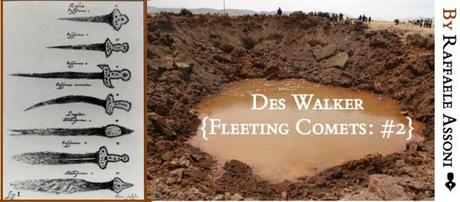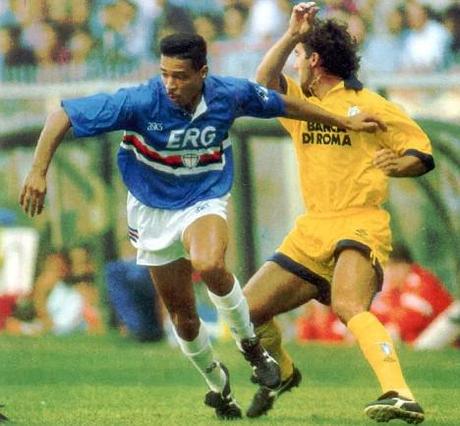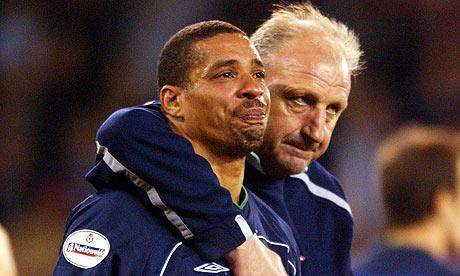
He was another example of an hopeful player who came from across the Channel into what used to be called ‘the most beautiful championship in the world’, failed bitterly and was sent back after only one season. Des Walker, granitic defender born in 1965, arrived at Sampdoria in the 1992-1993 season, from Nottingham Forest. His signing was dealt through a million-pound fee (exorbitant at the time) by the great Doria president, the unforgettable Paolo Mantovani. Owner of a spot in the English national team, Walker struggled deeply to settle in Italy; language problems and a difficult character limited his experience from the first day. He had difficulty even to bond with his companions, which sounds like a surprise in a dressing room usually described as close-knit and compared to a big family.
Arrived in Genoa with the nickname of Starbuster (or star-catcher), because of his infallible reputation in the air, he turned out to be the inadequate protagonist of a season that became, among other things, the prelude to his fall into anonymity in football. (Until then, he had been pretty well known at the European level.) With a great physical elevation, Des Walker was also slow and often unresponsive. Certainly suited to the Premier League, at a time in which long balls were the order of the day, Walker was a very strong man, a little rough and prone to cards, but overall an effective specialist as a stopper, although a trademark of his coach, Sven Goran Eriksson, was the application of zonal marking.

There are three emblematic episodes. The first refers to a Sampdoria 1-1 Juventus. The Doriani took a lead, thanks to a goal by Attilio Lombardo. In the action of the Juve tie, Walker was ready to catch the ball with a header, but his teammate Marco Lanna came to disturb him, obviously with little confidence in his partner. The two collapsed to the ground after a resounding clash of heads, while the ball came to Andreas Moeller, who scored the easiest of goals. Lanna should have been seen as guilty, but the unanimous reaction of the fans in Marassi, who had been very patient with the black giant, was of total unrest from that day forward, causing him to lose whatever little peace of mind he had.

The other two episodes refer to a Milan 4-0 Sampdoria, in which Walker sinks at every offensive foray of A.C. Milan. Symbolic are the second and the fourth goal: Gigi Lentini’s cross from the left is concluded by a diving header, almost to the ground, of Jean-Pierre Papin between the legs of the cumbersome defender. The last action is an open 1 v 1 situation between the two, Walker and Papin, with the French dribbling past the English defender for the final 4-0. After Sampdoria, where he played 30 games, Des Walker moved to Sheffield Wednesday in which he played for 8 seasons, before returning to Nottingham Forest for the last two years of activity, closed in 2004 at the age of 39.
From my point of view, Walker was undoubtedly a player of quality, who paid a high price for the tactical changes introduced in the defense by the new principles of zonal marking. In that moment, in fact, many coaches tried to emulate Arrigo Sacchi’s aggressive 4-4-2 system: using a very high line of defense, applying the offside trap to almost exasperating effects, and asking one of the two central defenders to start weaving the playing from deep, which at times meant moving the ball forward for several yards. All of this unsettled Walker. The slowness of his movements made him unsuitable to a high defense and his individual technique was not the most graceful to watch. It was a time in which physical strength and aerial skills were not sufficient to avoid the disapproval of his audience. ♦

